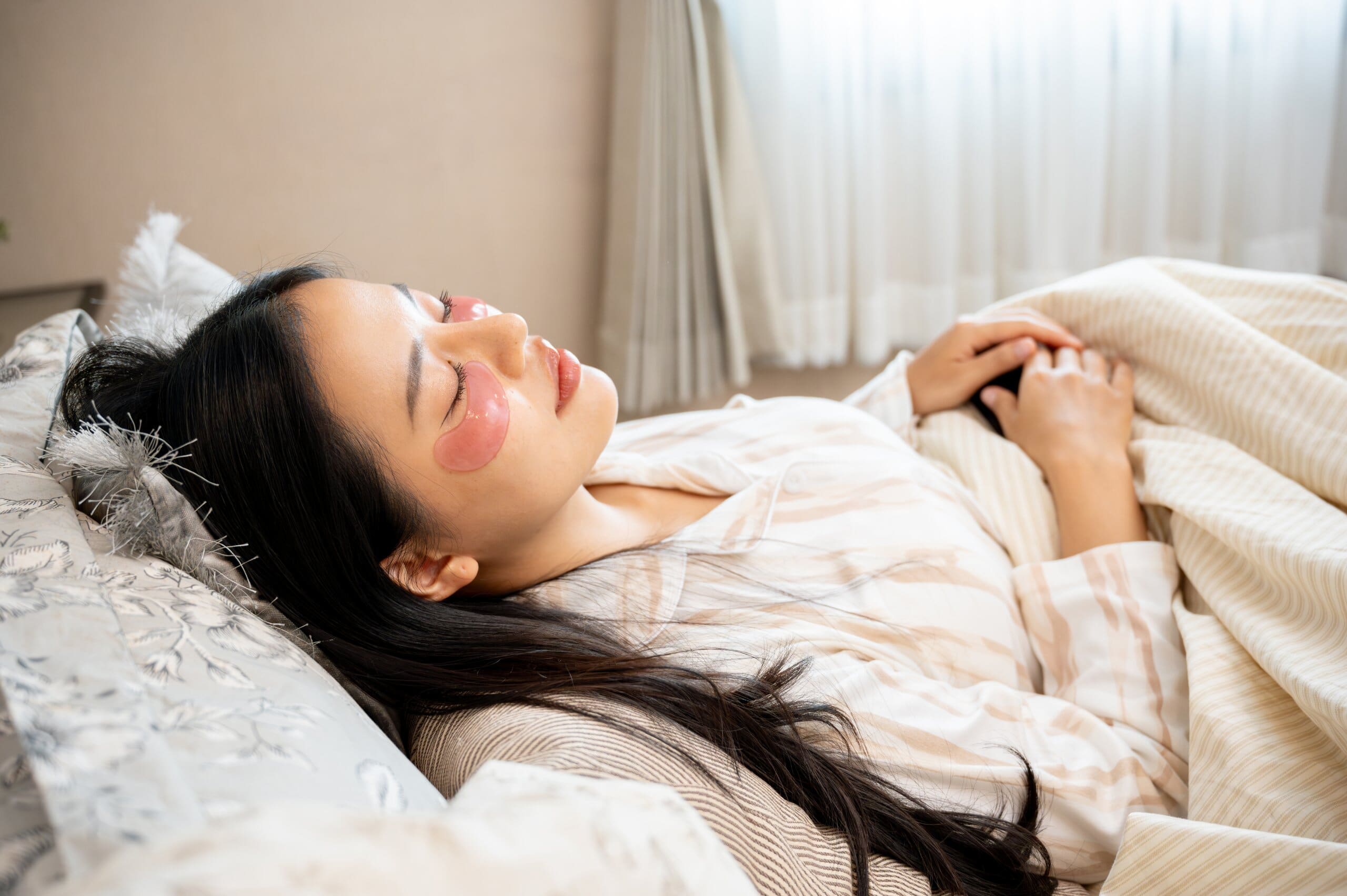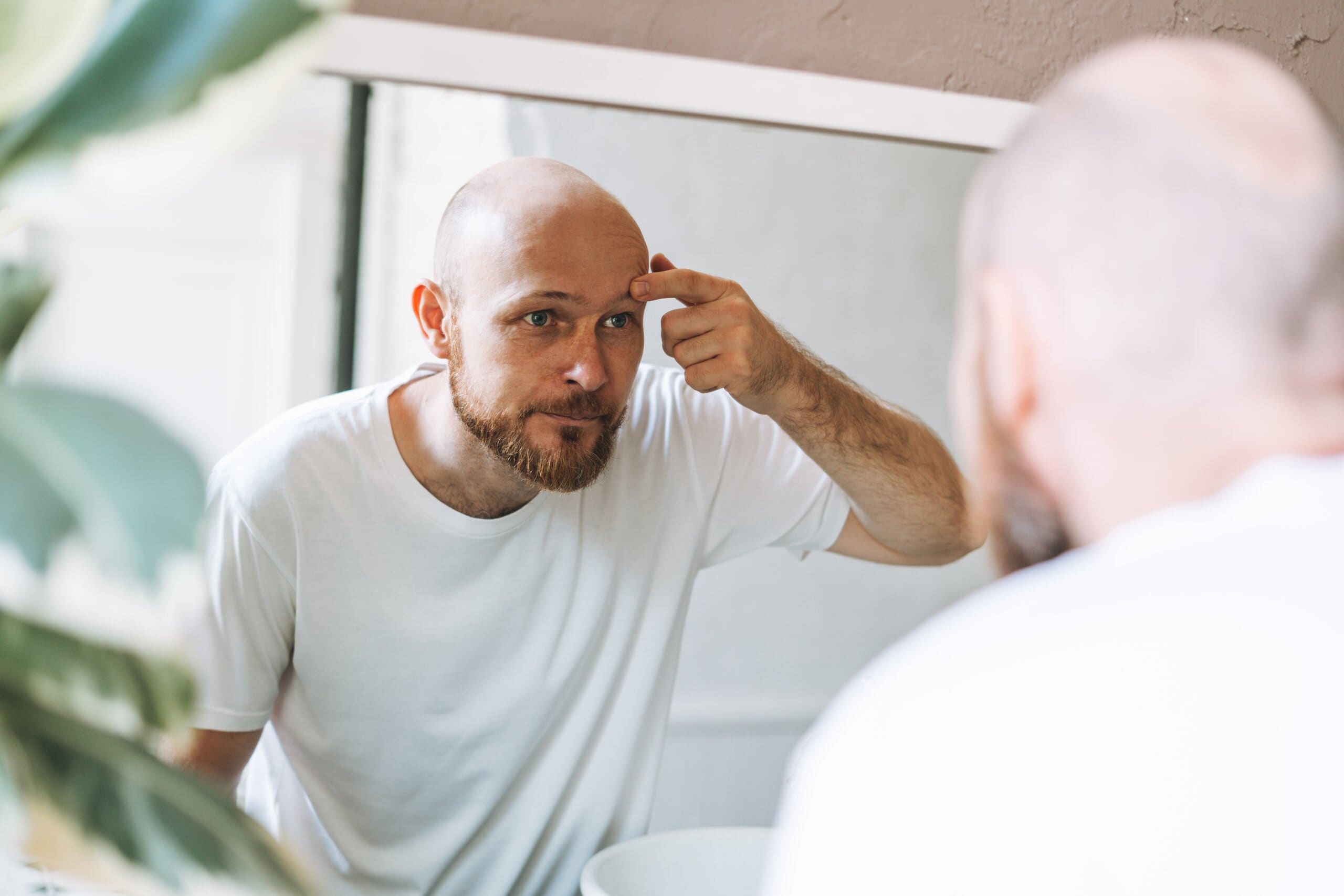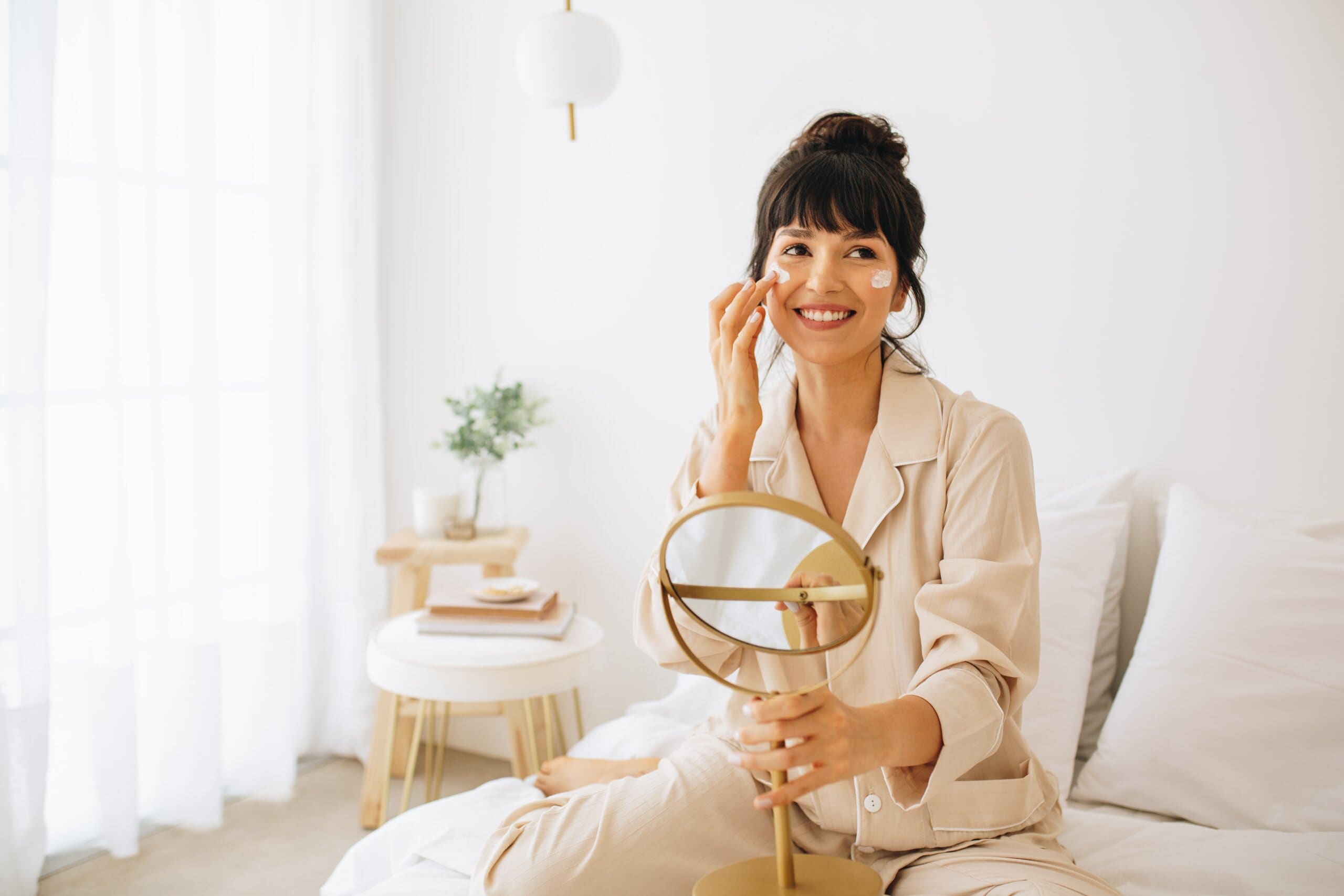Whether you’re fully devoted to sleep and always get your recommended 7-9 hours, or you’re a serial napper who loves nothing more than to take a spare 45 minutes out of their day to catch an extra 40 winks, we all know just how important sleep is for keeping our bodies healthy.
Of course, while we’re all very aware of how vital good sleep is for our mental health, our immune system, and our muscles, you might never have stopped to think just how essential sleep is for maintaining our skin as well.
Well, as it turns out, sleep is a very important part of any skincare routine, especially if you want to reduce those bags under your eyes and avoid outbreaks of acne and dry skin patches.
Keep reading to learn more about the benefits of sleep for your skin, and how you can ensure you’re doing everything you can to promote healthy skin repair during those early hours of the morning.

Does sleeping help your skin rejuvenate?
To put it simply, yes; sleep absolutely helps your skin rejuvenate. In fact, sleep is an essential part of the skin regeneration cycle that takes place in your body each and every night.
Although we’re shedding skin at all times of the day, while we’re asleep, this process of cell loss and repair is rapidly increased. This is because the body has more energy to divert to cell division, allowing us to rapidly cycle out old skin cells for new ones.
However, there’s more to skin health and sleep than simply cell repair, as sleep is also the time when our bodies pull the stress from our skin by reducing cortisol, balancing hormone levels, and increasing blood flow, which further promotes rejuvenation.
Add to this the fact that sleeping is one of the few times in the day when our skin gets a break from exposure to all those UV rays and environmental toxins, and it should be pretty clear just how important good sleep is if you want your body’s main protective barrier to stay looking its best.
Can lack of sleep cause bad skin?
So, we know that getting good sleep is important for improving your skin’s overall health, but just how bad is it for your skin if you get less than 8 hours of rest a night? Surely it can’t be that bad?
Well, aside from the obvious circles you’re going to get under your eyes, even just one or two nights of poor sleep can have a detrimental impact on our skin’s health, leading to unsavoury symptoms such as:
- Dry and flaky skin due to a weaker immune system
- Acne and eczema outbreaks from heightened stress levels
- Hollow or sagging cheeks and eyes due to reduced collagen levels
- Skin dehydration from reduced moisture retention
And all these are just the start, as chronic sleep deprivation has also been shown to lead to premature skin aging and wrinkle growth, which can’t be solved by applying extra moisturiser before hitting the hay.

What are the main sleep benefits for your skin?
Given that not sleeping properly has an adverse impact on the health of your skin, it stands to reason that getting a proper night’s rest will have the opposite effect. And this is most certainly true!
In fact, studies have shown that if you can maintain a regular sleep schedule of at least 8 hours, your body will have more than enough time to produce the following essential sleep benefits for your skin:
- Increased hydration: Although we tend to lose the most water through our skin during sleep, the body does an excellent job at retaining what water is present through hormone changes released during the sleep cycle, helping you to feel refreshed even upon waking.
- Reduced inflammation: One core aspect of sleep is to reduce all those stress hormones that get released throughout the day to normal levels, which in turn reduces inflammation in our skin and reduces red patches, itchiness, and dryness.
- Improved skin elasticity: When it comes to healthy skin elasticity and wrinkle reduction, good collagen production is absolutely essential. And seeing as most collagen is produced while we’re asleep, it goes without saying that a full 8 hours is a must for keeping your skin firm.
- An improved skin tone: While we might not associate sleep with maintaining our skin tone, this nightly period of rest is essential for promoting a healthy glow as it’s when blood flows closest to the skin to enable our skin cells to properly repair.
- A boosted immune system: Last, but not least, good sleep is needed to keep our immune system functioning at peak performance and our skin layers free of various bacteria and viruses that often cause common skin problems.
How can you increase sleep benefits for your skin?
With the benefits of sleep for your skin as clear as day, you might be wondering how you can improve your own sleep routine to ensure your skin is looking its best, even upon waking.
Below are our top tips for increasing the sleep benefits for your skin:
- Try to hydrate your body a few hours before bed so you don’t wake up dehydrated, but don’t drink right before bed to avoid waking up in the night.
- Minimise how much alcohol you drink on a regular basis so your body and immune system can focus fully on the healing process.
- Follow a dedicated morning and evening skincare routine that uses a moisturiser, sunscreen, and cleansers to help your skin retain moisture and repair fully.
- Clean your pillowcases regularly as they have a habit of soaking up oil and bacteria from your face, which can cause clogged pores and other skin problems if left to build up.
- If you have the budget, consider using silk pillows instead of other materials. These are gentler on your skin than cotton, especially if you have sensitive skin, and can help reduce the likelihood of acne and eczema outbreaks.

When is the best time to sleep for skin repair?
With all this talk of getting enough sleep for your skin, you might be wondering at what point in the evening is the best time to sleep for skin repair. And, perhaps most interestingly, it would seem peak skin repair time happens relatively early in the evening.
Much like sleep, your skin goes through its own cycles of regeneration throughout the day. However, these cycles peak between the hours of 9pm and midnight. So, if you want to make sure your skin is at its healthiest, you should ideally be trying to go to bed within this timeframe.
Improve your sleep to improve your skin
So, there you have it, sleep does indeed have many benefits for your skin, making it just one more reason why you should be prioritising getting a full 8 hours or more each and every night.
But, naturally, this sort of good sleep requires a high-quality mattress, comfortable pillows, and a snuggly duvet, especially those that promote air circulation and encourage a fresher sleeping environment. Consider hypoallergenic mattresses if you're prone to allergies that may cause breakouts, and invest in a mattress protector to keep your sleep set-up as hygienic as possible.







